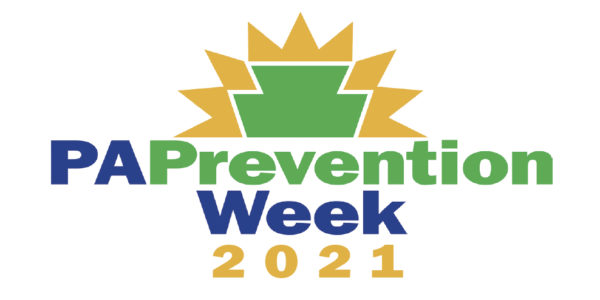Human services students highlight benefits of Pennsylvania Youth Survey
Monday, June 14, 2021
Two Pennsylvania College of Technology students and their professor recently shared their expertise as part of Pennsylvania Prevention Week 2021, which encourages citizens across the commonwealth to recognize the importance of substance abuse prevention as a priority for public health.
In an 18-minute video, students Alexandria M. George and Cydney L. Ginter and faculty member Elizabeth E. Winder discussed “Utilizing the PAYS in Higher Education.” The PAYS (Pennsylvania Youth Survey) is a survey of sixth, eighth, 10th and 12th grade students that gathers insights into young people’s behavior, attitudes and knowledge concerning alcohol, tobacco, other drugs and violence.
“I routinely use this survey to help my students better understand data-driven decision making and to help them understand how to prescribe evidence-based programs based on targeted, community need,” said Winder, assistant professor of human services and restorative justice.
 Commonwealth Prevention Alliance approached Winder about creating a video to highlight the ways higher education institutions can utilize the PAYS. She enlisted George, a human services and restorative justice student residing in Wyomissing, and Ginter, an applied human services student from Tyrone, to provide student perspectives.
Commonwealth Prevention Alliance approached Winder about creating a video to highlight the ways higher education institutions can utilize the PAYS. She enlisted George, a human services and restorative justice student residing in Wyomissing, and Ginter, an applied human services student from Tyrone, to provide student perspectives.
“I was able to use this survey to learn about topics ranging from substance abuse to bullying to mental health to so many other things that affect teenagers’ lives,” George explained, “… and I think, without the PAYS survey, I would not have been able to get in-depth with the projects that I have completed. … I will probably return to this survey several times.”
 Ginter said, “I really felt the PAYS goes through so many different categories that are so important to learning about our youth and having a good grasp on what is going on with our youth … (so we can) be there for our youth. I just feel it’s a great tool to use. It has benefited me in multiple ways … and prepares me for what I want to do in the future.”
Ginter said, “I really felt the PAYS goes through so many different categories that are so important to learning about our youth and having a good grasp on what is going on with our youth … (so we can) be there for our youth. I just feel it’s a great tool to use. It has benefited me in multiple ways … and prepares me for what I want to do in the future.”
Through the video outreach, Winder hopes to inform institutions of higher education on how the PAYS can be beneficial to their efforts and to encourage local prevention coalitions among organizations and the colleges and universities in their communities. She says the survey can identify trends of possible incoming student needs, assisting counseling services, health and wellness services and academic advising. From a community standpoint, the survey presents data that can be used to devise partnerships enhancing town and gown efforts, and, she adds, the survey can also help institutions identify additional funding streams.
"Cydney and Ally's understanding of the PA Youth Survey was impressive,” said Jeff Hanley, executive director of Commonwealth Prevention Alliance. “I really appreciate how they value collecting data and recognize the importance of using this data to inform prevention programming. Dr. Winder is such an amazing person, passionate about teaching, and a great communicator who shares her knowledge and experiences in a way we all can understand. We were so fortunate to have them present during National Prevention Week to all the Prevention Professionals in PA. Their video highlighted the importance of building relationships & collaborating with our local institutes of higher education to assist in improving the public health of our communities."
 The PAYS is sponsored and conducted every two years by the Pennsylvania Commission on Crime and Delinquency and has been implemented in over 400 of the 500 school districts in Pennsylvania.
The PAYS is sponsored and conducted every two years by the Pennsylvania Commission on Crime and Delinquency and has been implemented in over 400 of the 500 school districts in Pennsylvania.
Prevention Week is a campaign dedicated to increasing the prevention of substance use and promotion of mental health by advancing prevention year-round. The weeklong PA Prevention Week observance brings individuals, organizations, coalitions, states, and communities together to celebrate and recognize Prevention efforts.
Penn College offers Associate of Applied Science and Bachelor of Science degrees in human services and restorative justice, as well as an online competency credential in chemical dependency. The educational offerings are a response to industry and societal needs and aim to education and empower professionals to make transformative changes in their workplaces and communities.